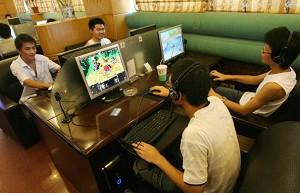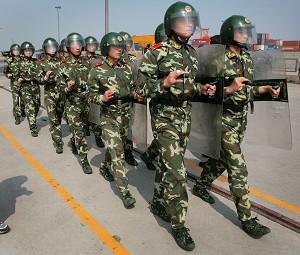With the Chinese Communist Party’s Seventeenth Congress around the corner, another wave of Internet traffic controls are sweeping across the nation.
Ministry of Information Industry Blocks Websites Nationwide
On August 27, 2007, Miao Wei from China Telecom declared, “To respond to the Ministry of Information Industry’s project ”to purify and improve the Internet environment and to combat Internet pornography,” China Telecom has blocked 8,808 illegal web addresses, cut off 265 virtual hosts without IDC (Internet Data Center) permits, and 9,593 unregistered websites.
Additionally, Yu Xijian from China Netcom (CNC) said it has blocked 587 websites which were unregistered from the IDC (Internet Data Center) or the ISP (Internet Service Provider), and 112 websites without IDC/ISP permits.
The action actually started in April. The Qiushi Journal, a publication of the Central Committee of the Chinese Communist Party (CCP), claimed, “On the Internet, noise of various ideologies, phony information and stirred emotions are propagated. It adds variety to our nation’s ideology. However, our task is to defend ourselves from our enemies’ plots to westernize and divide us, which becomes more important. The current situation is very difficult.”
According to the CCP’s Qiushi Journal, by the end of 2006, there were 137 million Internet users in China (population 1.3 billion) and 80 percent of them were under 35.
“The Current Situation Is Very Difficult”
Recently, some mainland BBS members forwarded the reporter notices from their BBS website administrators, it states, “The situation has been very tough. Due to the coming CCP Seventeenth Party’s Congress, the intensity of Internet surveillance and control has reached a record high. About 90 percent of the internal forums and websites of the Public Safety system have been cleared. I must remind everyone again: the current situation is very tough! The most sensitive topics are those that
-involve the Party, state, government, governmental departments and units;
-involve Japan, Darfur in Sudan, issues in Tibet and Xinjiang;
-involve appealing crowds, parades, demonstrations and livelihood issues; and
-involve overseas Falun Gong, the rightists, exiles from Tibet and Xinjiang.
The administrators asked everyone to “report and delete such postings immediately!”
Some Internet surfers think that the Internet provides a special environment for freedom of speech and that is what attracts numerous users. Freedom of speech is the lifeline of the Internet. The government has a hard time adapting to it and is always suspicious, causing conflicts between the current political system and opinions online.




